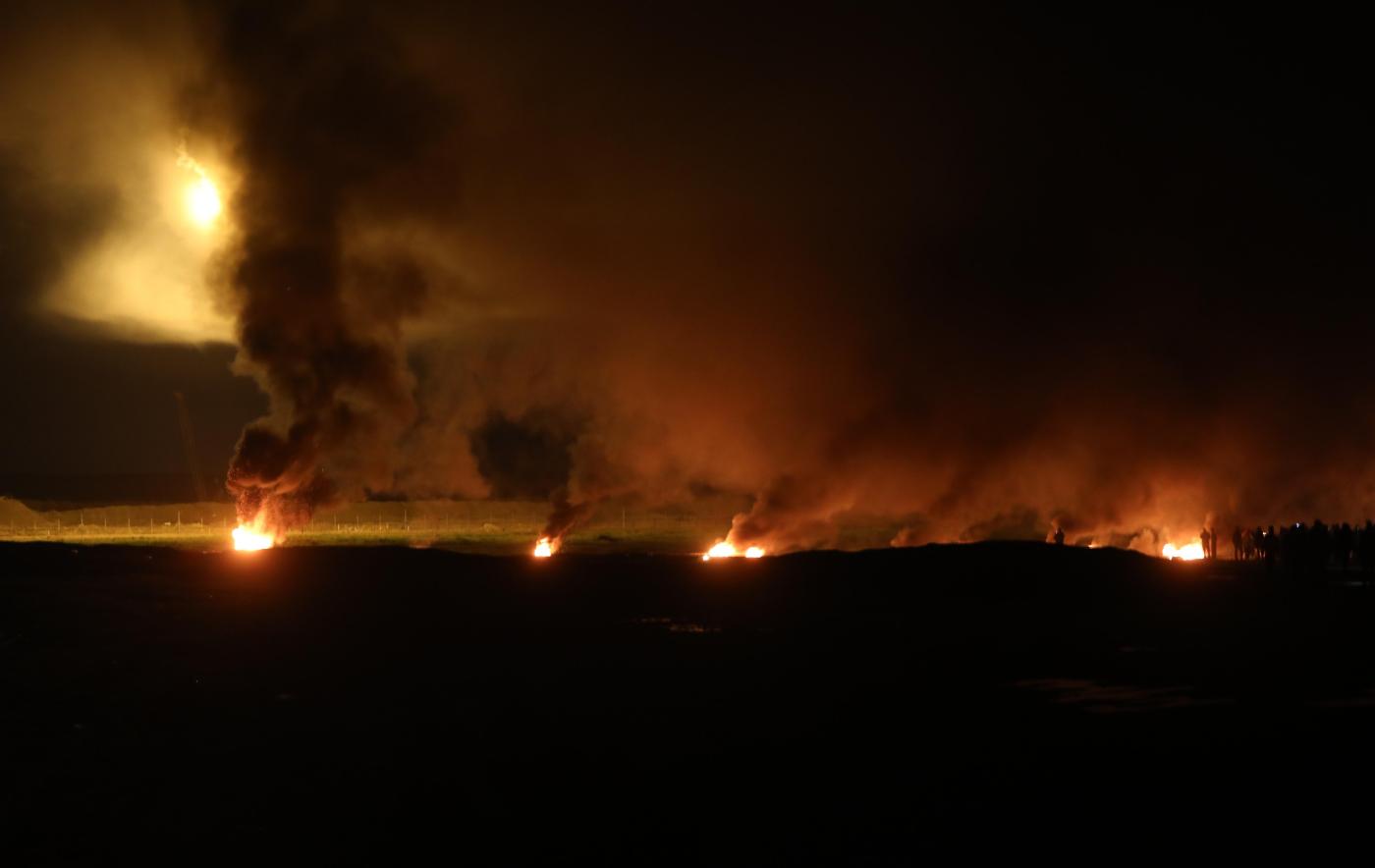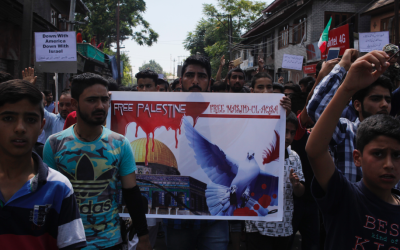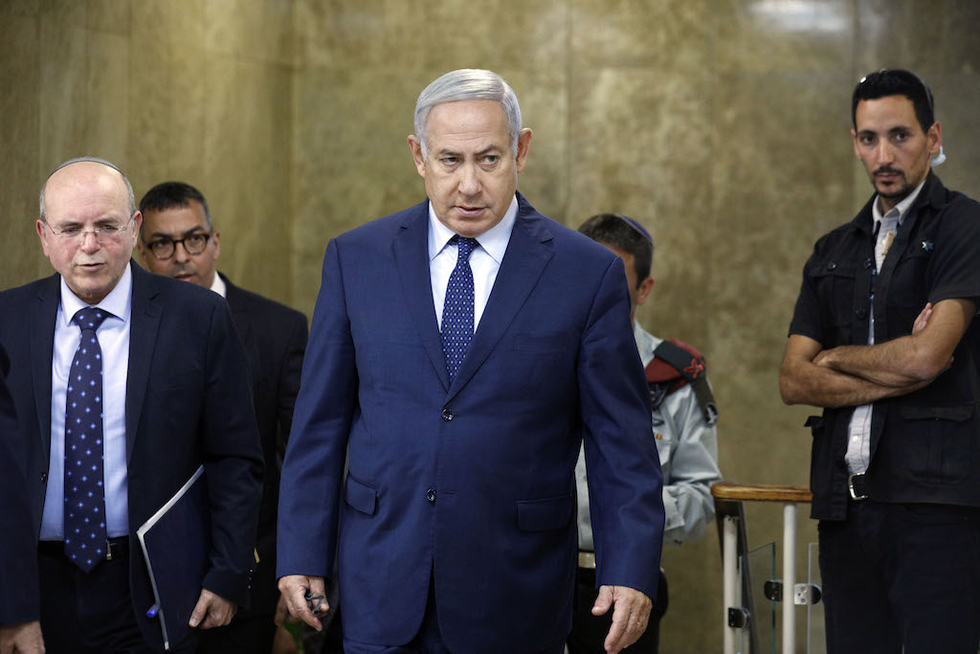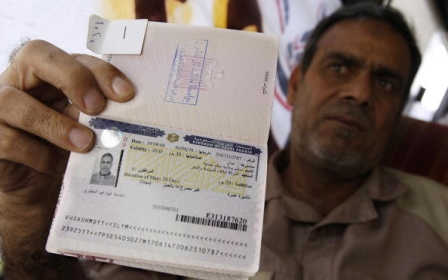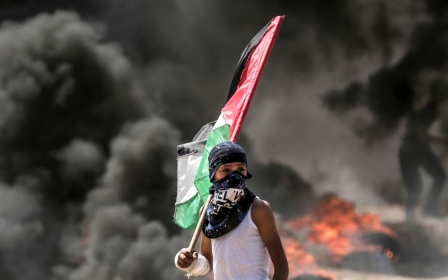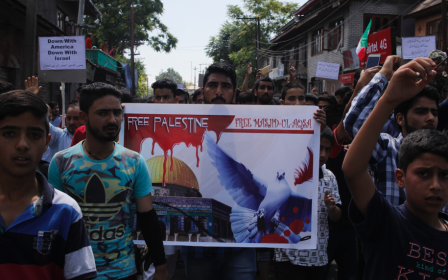Gaza's future hangs in the balance as Egypt looks to broker Hamas-Israel truce
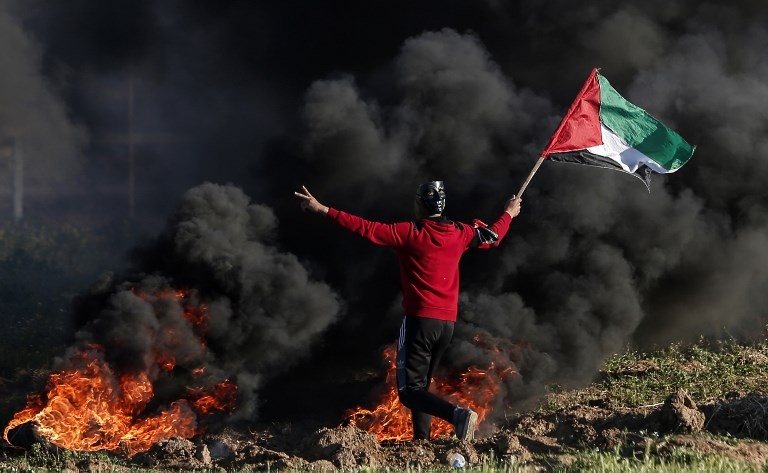
Just as the reality of the United Nations’ warning that the Gaza Strip would become “unlivable” by 2020 looms nearer, Palestinians in the small enclave contend with the consequences of nearly 12 years of crippling blockade, three wars, and a vast protest movement fast approaching its first anniversary.
United Nations Special Coordinator for the Middle East Peace Process Nickolay Mladenov and the head of Qatar's National Reconstruction Committee, Mohammed al-Emadi, have reportedly been leading an active movement to reach a truce between Israel and the Hamas movement and defuse a tense situation potentially verging on an explosion.
Gaza residents are now pinning their hopes on Egypt to help broker an agreement with Israel to help alleviate the humanitarian situation - amid fears that, should efforts for a truce fail, a fourth major military confrontation could become a devastating possibility.
'Gestures of goodwill'
Since late February, an Egyptian security delegation has been mediating indirect talks between Hamas, the de facto ruling party in Gaza, and Israel in order to reach a truce that, if reached, would be implemented in two phases and, mediators hope, would culminate in a long-term agreement lasting between five to 10 years.
An Palestinian political source told Middle East Eye that Palestinians had implemented "gestures of goodwill" to help the Egyptian delegation succeed in its mission.
One such gesture has been the halting of night-time protests as part of the Great March of Return movement. Demonstrators, calling themselves “Night Confusion Units”, had reignited evening protests in February in protest of the perceived failure of another Egypt-brokered truce struck in November.
Another Palestinian move ahead of the potential truce has been to halt March of Return protests on Fridays in northern Gaza for the past two weeks, at one of the five gathering points demonstrators have used since 30 March 2018, the Palestinian political source said.
These initiatives have reportedly come from Hamas in response to Israeli demands transmitted by an Egypt delegation last week, which called for "stopping the coarse tools" used by Palestinians to apply pressure on Israel.
Meanwhile, Israel has allowed previously halted Qatari aid to enter Gaza once again to be distributed to poor families.
Easing the siege
Hamas - which has been in power in Gaza since 2007 after a contested win in Palestinian Authority (PA) legislative elections a year earlier - has been seeking to overcome the crises brought on by the blockade imposed by Israel and upheld by Egypt, whose effects have intensified ever since the West Bank-based Fatah-led PA began imposing its own sanctions in April 2017.
Hamas politburo member Suhail al-Hindi stressed to MEE that Hamas's commitment to a truce in order to ensure a significant easing of the blockade - including the movement of goods at crossings, an expansion of the designated fishing zone, a resolution to Gaza’s severe electricity shortages help poor families, as well as help to address the issue of rampant unemployment and poverty.
While Egypt is leading the indirect talks between Hamas and Israel, the UN and Qatar have stepped in to ensure the establishment and financing of projects to ensure the sustainability of the agreement and address the humanitarian crisis in Gaza.
However, Hindi maintained that Gaza had the right to "fight" to break the siege in every way and alleviate the suffering of Palestinians living in such difficult circumstances.
Hamas and the other political factions involved in the high committee of the Great March of Return have refused to call for a complete and immediate end to the demonstrations - at least not until a long-term truce is reached.
Great March of Return demonstrations began along the boundary between the Gaza Strip and Israel in March last year, calling for an end to the siege and the implementation of the right of return for Palestinian refugees displaced during Nakba in 1948. The Gaza Ministry of Health has reported that Israeli forces have killed at least 256 Palestinians and wounded more than 29,000 since the beginning of the protests.
Hindi said that the protests and actions taken during them are dependent on its actors on the ground, and would be addressed according to the “interest of the people”, while political factions plan on working towards an agreement with "high flexibility" taking into account the difficult conditions experienced by the residents of Gaza.
A senior source in a political faction participating in the march committee told MEE that protests would be gradually scaled down and eventually ended should a truce agreement be reached to improve the lives of people in Gaza.
A member of the Democratic Front for the Liberation of Palestine (DFLP) political bureau, Talal Abu Zarifa, told MEE that the active efforts of the Egyptian delegation to obtain a truce come from Cairo's recognition of the risk that the situation in Gaza could devolve into all-out conflict.
"All options are open for the resistance" should Israel remain uncompromising in Gaza, Abu Zarifa said.
Pointing to the agreement previously brokered by Egypt in November, following an ill-fated Israeli military raid in Gaza that led to a brief but heated escalation of violence, Abu Zarifa blamed Israeli "intransigence and the evasion of obligations" for the breakdown of the tentative truce.
Electoral stakes
The renewed Egypt-led efforts aim to lead to an agreement to be implemented in two stages, according to Abu Zarifa.
The first stage, which negotiators hope will take place by the end of the month, would include the gradual expansion of Gaza’s designated fishing zone to 15 nautical miles up from six to nine miles currently; generalised access to electricity across Gaza for eight hours a day from six hours now; and facilitated movement of goods in and out of Gaza.
The second phase to occur six months down the line, would include - according to Abu Zarifa - the establishment of an airport or a port in Gaza, the restoration of a major Israeli power line that has been idle for years, the transformation of the only electricity plant in Gaza to be power by gas instead of fuel, and the steady provision of said gas to Gaza via pipelines.
However, a Hamas source told MEE that, during a recent meeting with Hamas leader Ismail Haniyeh, the Egyptian delegation had refused to pass on to the Israelis Palestinian demands regarding a port or airport or a prisoner exchange deal - arguing that the priority was on immediate steps that could ease the siege and avoid an explosion in Gaza.
Nonetheless, another Palestinian political source in Gaza who requested anonymity told MEE that Israeli Prime Minister Benjamin Netanyahu was keen to put an end to the Great March of Return before its upcoming one-year anniversary, which will occur ten days before legislative elections in Israel.
Already embroiled in a number of corruption scandals, Netanyahu has been embarrassed by night-time demonstrations in Gaza and protesters’ use of incendiary kites and balloons, which burnt down acres of land in southern Israel last summer.
Yet despite Netanyahu’s inflammatory rhetoric seeking to highlight his iron-fisted approach against Hamas, Palestinian columnist on Israeli affairs Saleh al-Naami said a military escalation in Gaza would not serve the Israeli leader's electoral objectives.
Netanyahu, Naami said, has shown extreme caution in Gaza, despite criticism at home for failing to stamp out the Great March of Return.
“Netanyahu understands that Gaza and Hamas have nothing to lose,” Naami said, adding that Hamas and other political and armed factions in Gaza were ready to go all the way in the event of a military escalation, regardless of the Israeli election.
“The resistance in Gaza does not accept to be used as a pawn by candidates in the Israeli elections,” Islamic Jihad spokesman Musab al-Buraim said to MEE. "We will accept no less than easing the siege on the political and humanitarian levels.”
According to the anonymous Palestinian source, should Netanyahu’s right-wing coalition stay in power after the election and Egypt, the EU and Qatar succeed in stabilising the situation in Gaza, the parties to the prospective truce could be encouraged to negotiate an advanced agreement lasting between five to 10 years.
The director of the Palestine Institute for Strategic Studies, Ibrahimal-Madhoun, was optimistic that "the chances of success of the Egyptian intervention are great and there is a good response from Hamas".
“The development of the tools used in the demonstrations, and their continuation and escalation over the course of a full year, have constituted an important mode of pressure in the hands of Hamas and the factions in Gaza, which may force Israel - this time - to abide by the truce,” he told MEE.
But Madhoun does not rule out that a "big escalation" could still take place - and fears that, should the Egyptian efforts fail, Gaza would end up the only loser if Israel reneges on its commitments after the elections.
Middle East Eye propose une couverture et une analyse indépendantes et incomparables du Moyen-Orient, de l’Afrique du Nord et d’autres régions du monde. Pour en savoir plus sur la reprise de ce contenu et les frais qui s’appliquent, veuillez remplir ce formulaire [en anglais]. Pour en savoir plus sur MEE, cliquez ici [en anglais].


